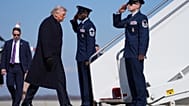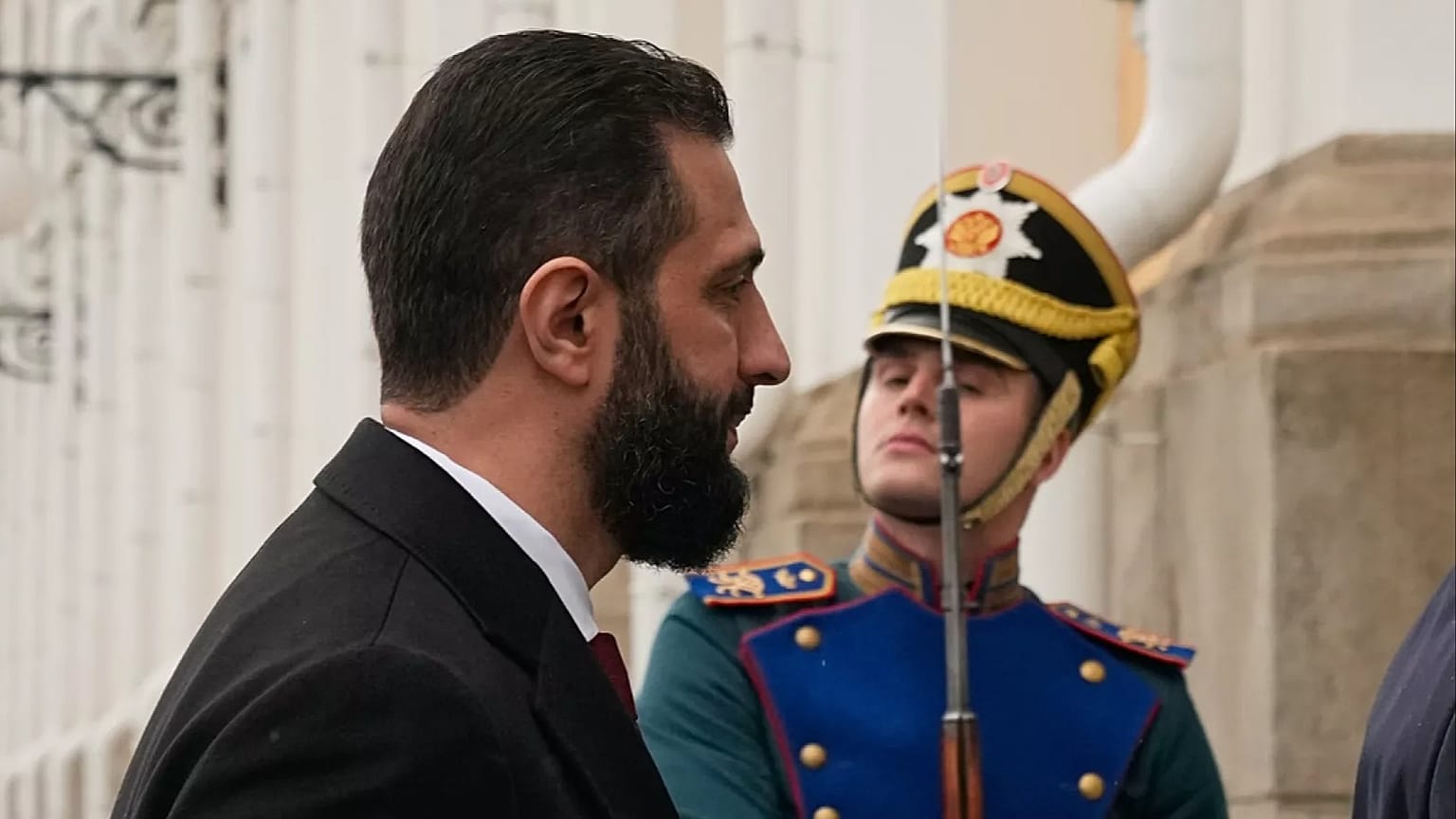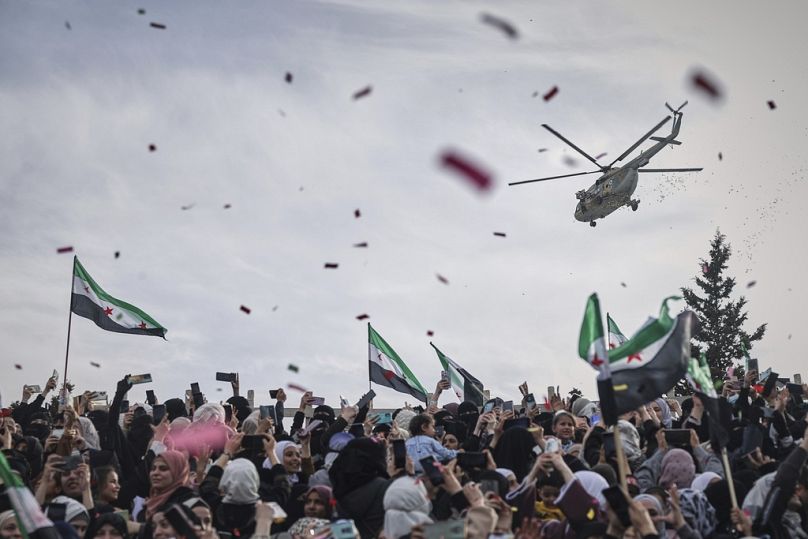The interim president of Syria arrived on an unprecedented visit to the Russian capital on Wednesday, where he is expected to demand that the Kremlin extradites toppled dictator Bashar al-Assad — who received asylum in Russia following his ouster — to face trial back in his country.
Syria’s interim President Ahmad al-Sharaa arrived on an unprecedented official visit to Moscow on Wednesday, less than a year after he led a swift rebel offensive that ousted one of Russia's top foreign allies, the dictator Bashar al-Assad.
 ADVERTISEMENT
ADVERTISEMENT
 ADVERTISEMENT
ADVERTISEMENT
Al-Assad was an ally of Russia, and Moscow’s scorched-earth intervention in support of him a decade ago turned the tide of Syria’s civil war, keeping al-Assad in his seat until his swift removal in December.
Now, al-Sharaa, who was greeted at the Kremlin with full honours, is expected to demand al-Assad's extradition so he can face a trial back home.
Al-Sharaa, who has also courted the US and the West since he came to power in December 2024, has taken a pragmatic approach with Moscow, allowing Russia to retain control over its air and naval bases on the Syrian coast despite being on opposite ends of the 13-year war.
In the run-up to the meeting, the Kremlin said that the future of the bases was on Moscow's agenda.
Al-Sharaa did not mention the Russian military facilities in his brief televised remarks at the start of the meeting. Instead he chose to talk about the “historic ties” between the countries and noted the importance of developing them.
In turn, he was hailed by Russian President Vladimir Putin for organising Syria's parliamentary elections, which Putin said were a “big success”.
Al-Assad uneasy subject for Moscow
Despite not explicitly mentioning the elephant in the room, it is widely expected that al-Sharaa will broach the subject of al-Assad's future in Russia.
Moscow, which has focused on its all-out war in Ukraine and kept only a small military contingent in Syria, did not try to jump to al-Assad's help and assist in repelling the rebel offensive. However, Russia did give asylum to al-Assad after he fled the country.
In a recent interview with the CBS News show 60 Minutes, al-Sharaa said the Syrian authorities “will use all available legal means" to demand the trial of al-Assad.
The Kremlin has largely avoided the subject so far.
Speaking to reporters Monday, Russia’s Foreign Minister Sergey Lavrov emphasised that Moscow granted asylum to al-Assad on humanitarian grounds as “he and his family faced physical extermination.”
Lavrov rejected claims that the former Syrian president had recently been treated for poisoning, saying that he “had no problems in living in our capital and there have been no poisonings.”
Al-Sharaa's top-level trip to Moscow was preceded by visits from Russian delegations to Damascus in January and September, while Syria's Foreign Minister Asaad al-Shibani visited Moscow in July.
For the new Syrian government, maintaining ties with Russia was important for rebuilding the war-shattered country and offered a way to diversify its foreign policy.
For the Kremlin, it's essential to keep its naval and air bases in Syria, outposts crucial for maintaining Russia's military presence in the Mediterranean.
In the CBS interview, al-Sharaa noted that “Russia has close and long-standing relations with Syria, which relate to the basic structure of the state and to energy and food, for which Syria depends partly on Russian supplies, as well as some old strategic interests."
'Tough guy, strong past'
Syria’s war which began in March 2011 killed nearly 500,000 people and displaced half the prewar population of 23 million. More than 5 million Syrians fled as refugees, some of them to Europe.
Although many Syrians initially hoped for stability after al-Assad was ousted, militant attacks on members of the Alawite minority in March and the Druze minority in July claimed hundreds of lives and revived security concerns.
Al-Sharaa has notably held an in-person meeting with US President Donald Trump in May, where Trump lauded Al-Sharaa as a “young, attractive guy".
"Tough guy. Strong past. Very strong past. Fighter," Trump said.
“He’s got a real shot at holding it together ... He’s a real leader. He led a charge, and he’s pretty amazing," the US president added.
The meeting between the two leaders paved the way for the US to lift its sanctions imposed on al-Assad to put pressure on his regime amid growing reports of war crimes and human rights violations.
Moscow's indiscriminate tactics of attrition during its military intervention in Syria in favour of al-Assad launched in 2015 resulted in thousands of civilian deaths and aggravated the Syrian refugee crisis.
A 2020 UN Human Rights Council report stated that the Russian air force's actions in Syria "amounted to a war crime".















